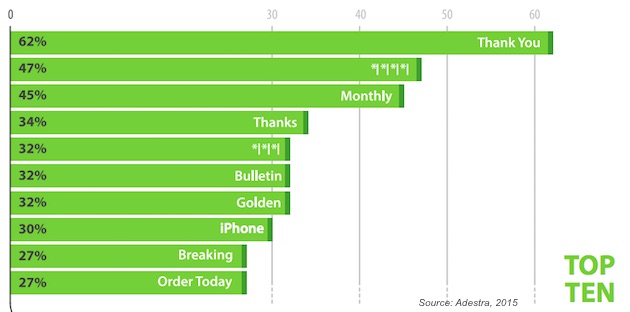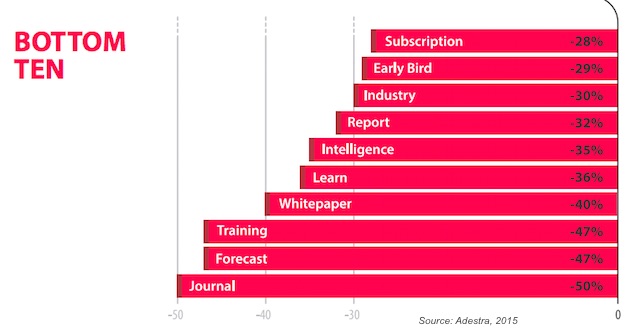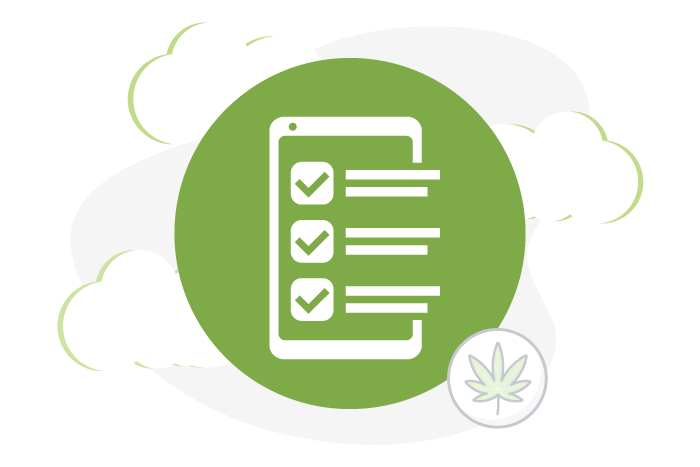With more marketing emails being sent than ever before, it’s essential that yours stand out from the crowd. There are effective ways to make recipients more likely to open and read your emails. For example, a recent report from Adestra demonstrated that using the words “thank you” in the subject line increases the likelihood of that email being opened.
The report pooled results from over 3 billion emails, which made up 125,000 global campaigns across four industries (conferences/events, retail/B2C, media/publishing and B2B). The 300 most popular words from the email subject lines were recorded, as well as the most popular characters and two-word phrases, and the researchers compared how each performed compared to the others.
As noted by the report, the results of the study provide only a “broad interpretation of the causal effects of individual words”. That means that the conclusion of the study will not necessarily apply to all brands.
Recipients like to be thanked
As a general rule, emails including the words “thank you” in their subject line were found to have the highest engagement levels, over 62% on average. This high value is partly a result of automated emails sent out following online purchases, such as email receipts sent by brands to customers.
Multiple topics grab attention
Another rule that became apparent was that email subject lines including multiple topics had a higher-than-average engagement rate, at around 47%. An example of a multi-topic subject line would be “End of summer sale | Win a holiday | Connect on social media”
Urgency stimulates action
Timeliness also works particularly well in email subject lines. The study showed that words such as “bulletin”, “breaking”, and “order today” all boosted engagement rates.

On the other end of the spectrum, mundane words that make reading the email feel like hard work have the opposite effect on engagement rates.
The study found that the most poorly performing words included “journal”, “forecast”, “training”, “whitepaper” and “learn”.

You can read the full report here for more detailed results by category, and the specific engagement metrics (CTR, open rate, unsubscribe rate etc.) of individual words.





